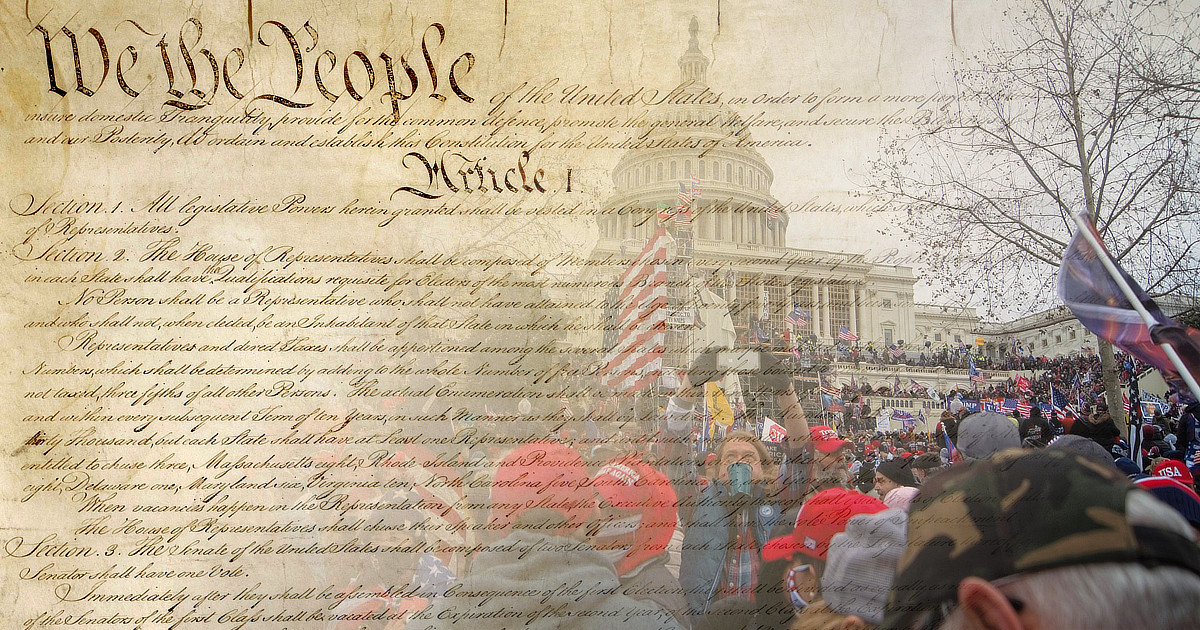Democracy, Republic and Trump
Donald Trump doesn’t want to end Democracy. He wants to end the Republic.

Image of unrest in the capitol ©2021 by Tyler Merbler; used under Creative Commons Attribution 2.0 license.
What is the difference between a Democracy and a Republic? Not much. Merriam-Webster tells us that “democracy and republic are frequently used to mean the same thing: a government in which the people vote for their leaders.” We find similar conclusions in this analysis by Eugene Volokh. As should have been clear all along, the United States of America was meant to be both.
I think these words have one important difference, though, and that is in their emphasis. Democracy, of course, at root means “rule by the people.” When Jefferson wrote about governments “deriving their just powers from the consent of the governed,” and when Lincoln spoke of “government of the people, by the people, for the people,” their object was democracy. It is an aspirational thing: an intent, a goal, a dedication. We never find it done perfectly, but we can strive to come always closer.
A Republic is a means to the purpose of Democracy. It represents the structure of government, founded in a Constitution and a body of law; in stark contrast to a monarchy or an aristocracy, a Republic is, as Adams told us, “a government of laws and not of men.” Our system of representation, peaceful transfer of power, checks and balances, Constitutional rights and the rule of law in our courts is what Franklin meant when he told us our government would be “a republic, if you can keep it.” As schoolchildren, many of us pledged our allegiance to the flag, “and to the Republic for which it stands.”
Our current president does not seek the end of Democracy. He has, in fact, learned to manipulate it. His assault, and that of his backers and enablers, is against the Republic. Their desire is that there should be no more checks and balances; no pesky Constitutional requirements; no Law that could supersede the will of the Executive.
Should the Republic fail, Democracy will surely fall with it. Yet this would be but collateral damage to those who see as the great thorn in their side not the will of the people (which they have many ways of influencing for their own ends already), but the structure of the Republic, which demands that they must follow the rules just as the common people must. This is what they find unpalatable: that they should be protected no more, and bound no less, than the rest of us.